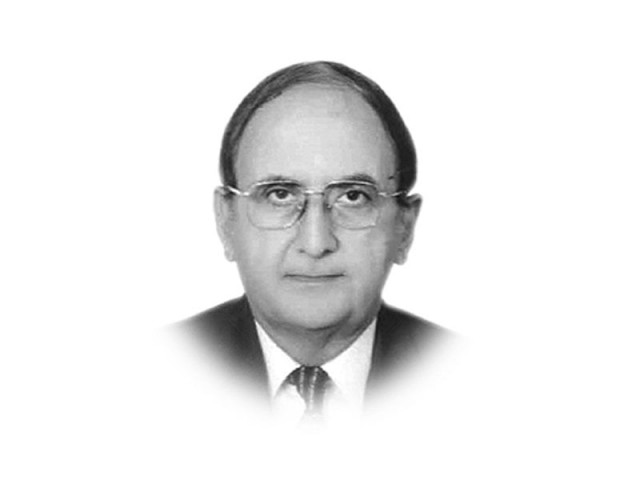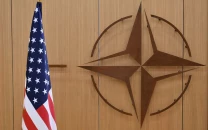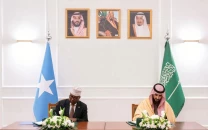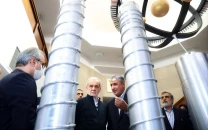New opening towards Russia?
Pakistan can expand its ties with Russia if it addresses Russian concerns about the presence of militants.

The writer is an independent political and defence analyst. He is also the author of several books, monographs and articles on Pakistan and South Asian Affairs
At Pakistan’s request, Russia is expected to sell some military equipment to Pakistan. This will include MI-35 helicopters, communication and transport equipment and some other equipment needed for countering terrorist activities.
The softening of Russia’s attitude towards Pakistan is a part of the changes that are now taking place in Russia’s global disposition. After the disintegration of the Soviet Union in December 1991, Russia’s economy did not warrant any confrontation with the West, especially the United States. It sought Western and especially American financial support to put its economic house in order.
After overcoming initial economic handicaps, Russia is now pursuing greater autonomy at the global level. It resisted the US policy of building military pressure on Iran with reference to its nuclear programme. It came to the rescue of Bashar al-Assad in Syria in the face of opposition by the US and some Arab countries. Russian policy towards Ukraine (2014) is another example of aggressiveness in foreign policy in disregard to the pressures from Western countries.
While maintaining priority relations with India, Russia is expanding its interaction with Pakistan as a part of its efforts to expand its foreign policy options in South Asia.
The earlier effort to upgrade the relationship between Pakistan and the Soviet Union was made in 1965-1970. This began with President Ayub Khan’s visit to Moscow in April 1965. The Soviet Union sponsored and hosted the dialogue between Pakistan and India at Tashkent in January 1966 to cope with the negative fallout of the September 1965 India-Pakistan War. India and Pakistan signed the Tashkent Declaration in January 1966 for normalisation of their bilateral relations on the initiative of Soviet Prime Minister Alexei Kosygin, who later visited Pakistan in April 1968 and May 1969. Two Pakistani military delegations visited Moscow in June 1966 and July 1968. A Soviet military delegation visited Pakistan in March 1969.
These visits resulted in the Soviet agreement to supply a limited number of military equipment and weaponry to Pakistan during 1968-1970. The Soviet supplies included T-54-55 tanks, MI helicopters and their spares, 130mm guns, jeeps and trucks. This relationship came to an end in 1971 when the Soviet Union decided to stand by India in the latter’s military action in East Pakistan by providing military supplies and extending diplomatic support. ZA Bhutto revived the Pakistan-Soviet relations marginally in the early seventies.
The Soviet-Pakistan relations were at its worst in the decade of the 1980s when Pakistan joined with the US, Saudi Arabia and other conservative Arab states to build Afghan resistance to Soviet military presence in Afghanistan.
Now, there are no direct conflicts between Russia and Pakistan. There were several diplomatic exchanges in 2012-2014. They talked of improving trade and Russia offered technical help in the energy sector and for upgrading the steel mill. The Gazprom Company showed interest in building a pipeline in Balochistan for the Iran-Pakistan Gas Project. These offers dissipated because the two sides did not adopt follow-up measures.
Important visits between Pakistan and Russia in 2012-2014 include Pakistan’s foreign minister’s visit to Moscow (February 2012); the Russian foreign minister’s return visit in October 2012; Pakistan’s air chief and the army chief visited Russia in August and October 2012, respectively; President Vladimir Putin’s visit to Pakistan in October 2012 was cancelled due to the problematic security situation in that month; Russia’s air force chief and army chief visited Islamabad in April and August 2013 respectively. The important visits in 2014 include the meeting of the Joint Working Group on counterterrorism in Islamabad (January), and Pakistan’s defence minister travelled to Moscow to participate in an international conference (May). He met with Russian officials during his stay. Parliamentary and technical delegations were also exchanged. Pakistan’s participation in the Shanghai Cooperation Organisation (SCO) as an observer enabled the Russian and Pakistani top leaders to interact with each other.
Pakistan can expand its ties with Russia if it addresses Russian concerns about the presence of militants from Central Asia and Russia in Pakistani tribal areas. The dissident and unhappy activists from Chechnya and the adjoining areas of Russia are known to be visiting tribal areas for refuge and training. Russia is also concerned about the connection between Pakistani tribal areas and militants from Central Asia, especially from Uzbekistan and Tajikistan. As Russia maintains strong interests in the security of states of Central Asia, it wants that no Central Asian militant finds a safe haven in Pakistani tribal area.
Pakistan’s army chief General Raheel Sharif visited China earlier this month. The issue of Chinese militants (East Turkestan Independence Movement) crossing over to Pakistan’s Gilgit-Baltistan and the tribal areas was raised by the Chinese leadership. A recent UN report claimed that some Pakistan-based militant groups engage in violence in Afghanistan and in some Central Asian states.
It would be extremely difficult for Pakistan to maintain productive relations with the international community, especially the neighbouring states, on a long-term basis if Pakistani territory is continually used by Pakistani and foreign militants for their violent activities inside and outside of Pakistan. The assertion of the primacy of the Pakistan state on its territory is a prerequisite for an effective foreign policy management.
Published in The Express Tribune, June 15th, 2014.
Like Opinion & Editorial on Facebook, follow @ETOpEd on Twitter to receive all updates on all our daily pieces.



















COMMENTS
Comments are moderated and generally will be posted if they are on-topic and not abusive.
For more information, please see our Comments FAQ